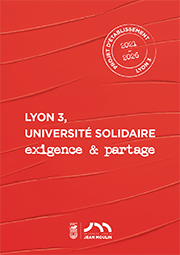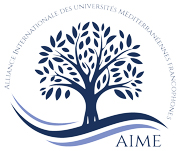AccueilRechercheProgrammes et productions scientifiquesThèsesThèses soutenuesThèses soutenues - 2006-2021Thèses soutenues - 2019
-
Partager cette page
- Recherche,
LEVALLOIS Pierre
L’établissement public marchand. Recherche sur l’avenir de l’entreprise en forme d’établissement public
Publié le 27 mars 2019 – Mis à jour le 27 mars 2019
Thèse en Droit public, soutenue le 18 mars 2019.
Figure de l’entreprise en forme d’établissement public, l’établissement public industriel et commercial fran?ais dé?oit, à tel point que la question de sa pérennité se pose ouvertement. Sous sa bannière, l’entreprise en forme d’établissement public subit deux sortes d’assauts. D’abord, l’utilisation de l’établissement public industriel et commercial à des fins de commodité de gestion d’activités administratives a porté un coup décisif à son identité d’entreprise. De plus, les lourdeurs de son statut juridique questionnent sa légitimité à servir de support à une telle activité économique. Ensuite, si le droit de la concurrence s’est jusqu’à présent contenté de neutraliser ses avantages statutaires, il semble désormais l’exclure plus simplement du marché. Il estime en effet son statut juridique porteur d’une garantie implicite, qu’il assimile à une aide d’?tat prohibée. La thèse tire alors parti de ce dépérissement de l’établissement public industriel et commercial pour proposer un nouveau modèle d’entreprise en forme d’établissement public : l’établissement public marchand. Son existence se justifie par les difficultés du modèle de la société commerciale à se substituer à celui de l’établissement public autant que par les potentialités offertes par ce dernier en matière de concurrence pour le marché. L’avènement de l’établissement public marchand suppose en revanche une révolution culturelle de la manière dont le droit administratif envisage l’intervention économique des personnes publiques. Elle sera nécessaire pour proposer un régime de l’établissement public marchand à la fois digne de sa vocation de marché et conforme au droit de l’Union européenne.
As a representation of the undertaking in the form of a publicly owned establishment, the French publicly owned industrial and commercial establishment disappoints, to such an extent that the question of its durability arises openly. Under its banner, undertaking in the form of a publicly owned establishment undergoes two kinds of assaults. First, the use of the publicly owned industrial and commercial establishment for the sake of administrative activities management convenience was a decisive blow to its undertaking identity. Moreover, the heaviness of its legal status questions its legitimacy to serve as a support for an economic activity. Second, if competition law has so far merely neutralized its statutory benefits, it now seems to be simply excluding it from the market. In fact, it considers that with its legal status goes an implied guarantee, which it regards as prohibited State aid. The thesis then takes advantage of the decay of the publicly owned industrial and commercial establishment to suggest a new model of undertaking in the form of a publicly owned establishment: the merchant publicly owned establishment. On the one hand its very existence is justified by the difficulties of the model of the commercial society to stand in for the public establishment as much as by the potentialities offered by the latter in terms of competition for the market. On the other hand, the coming of the publicly owned merchant establishment presupposes a cultural revolution in the way in which administrative law contemplates the economic intervention of public persons. It is essential to suggest a regime of the merchant publicly owned establishment worthy of its vocation as a market and, at the same time, in conformity with European Union law.
Mots-clés : Entreprise publique – ?tablissement public – Entreprise en forme d’établissement public – ?tablissement public industriel et commercial – ?tablissement public marchand – Droit administratif – Droit public de la concurrence – Garantie implicite – Aides d’?tat – Service d’intérêt économique général.
Keywords : Publicly owned undertaking – Publicly owned establishment – undertaking in the form of a publicly owned establishment – Publicly owned industrial and commercial establishment – Publicly owned merchant establishment – Administrative law – Public competition law – Implied guarantee – Stade aids – Service of general economic interest.
Keywords : Publicly owned undertaking – Publicly owned establishment – undertaking in the form of a publicly owned establishment – Publicly owned industrial and commercial establishment – Publicly owned merchant establishment – Administrative law – Public competition law – Implied guarantee – Stade aids – Service of general economic interest.
Directeur(trice) de thèse : Caroline CHAMARD HEIM
Membres du jury :
- Mme CHAMARD-HEIM Caroline, Directrice de thèse, Professeure des universités, Université Jean Moulin Lyon 3,
- M. ECKERT Gabriel, Professeur des universités, Université Science P? Strasbourg,
- M. KARPENSCHIF Micha?l, Professeur des universités, Université Jean Moulin Lyon 3,
- Mme NICINSKI Sophie, Rapporteur, Professeure des universités, Université Paris 1 Panthéon Sorbonne,
- M. PLESSIX Benoit, Rapporteur, Professeur des universités, Université Paris 2 Panthéon Assas.
Président du jury : Gabriel ECKERT
Documentation
Mise à jour : 27 mars 2019







